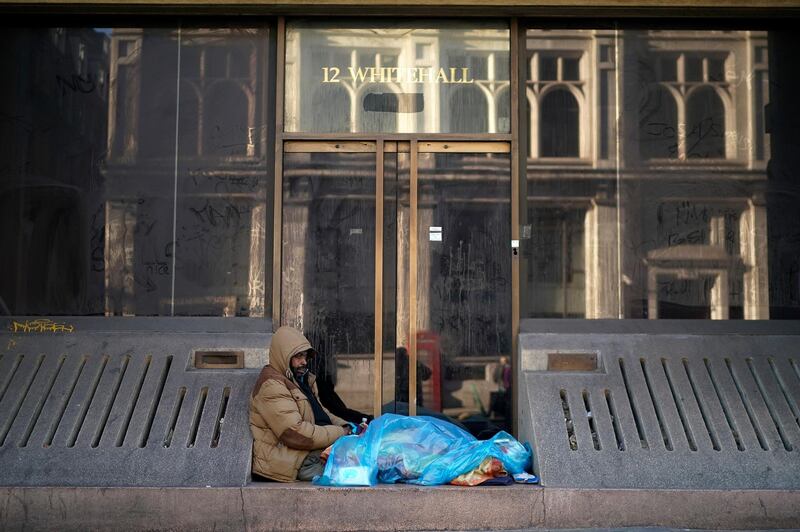A hotel in the English city of Hull is facing a public backlash after cancelling 14 rooms booked to give homeless people a place to stay over Christmas.
The Raise The Roof Homeless Project, run by Carl Simpson had raised over £1000 (dh4635) to pay for two nights at the Royal Hotel Hull for 24 local homeless people.
On Saturday, just days before the booking was due to begin, the hotel cancelled the twin rooms, giving no reason for the cancellation, said to Mr Simpson. He says the hotel was aware of the reason the rooms were booked.
“I asked for a reason and was told there isn't one,” he wrote in a Facebook post which has since gone viral.
“I've asked for a email to be sent [as soon as possible] giving reason for this action so will update you when it arrives but in my eyes this is nothing more than discrimination especially after we was (sic) so open about what it was for.”
Mr Simpson’s Facebook post was met with shock from the local community, with many commenting online about their disgust and calling for a boycott of the hotel.
However, others used the social network to make alternative offers of accommodation or food, which Mr Simpson says he is making his way through.
Homelessness figures are on the rise in the UK, fuelled by the transition of welfare payments from a multi-payment system to a single monthly payment called Universal Credit. A gap in payments as some areas switched welfare services has left many unable to pay rent or private landlords and at risk of eviction.
Research released by homelessness support charity Crisis and Heriot-Watt University last week revealed 24,250 people were facing a homeless Christmas, sleeping on the street, in tents or on public transport.
The same study found that between 2012 and 2017, homelessness soared by 120% in England and 63% in Wales.
As his Mr Simpson's Facebook post began to go viral, the two crowdfunding pages dedicated to the cause racked up donations, reaching £10,000 in total at the time of writing.
Christmas is traditionally a time for giving in the UK, with thousands volunteering at soup kitchens or donating cash to give the homeless or unwell a bed and a hot meal during the religious festival.
Elsewhere in the UK, businesses are opening up to homeless people. In Wakefield in the north of England, fish and chip shop Lightwaves Fisheries has committed to serving food to those less fortunate and in Leicestershire local businessman Prakash Bhojani has donated £100,000 to refurbish en-suite apartments for homeless people to move into in time for Christmas.
_______________
Read more:
[ UN envoy: Brexit will drive more into poverty ]
UN envoy warns poverty in Britain is a political choice
United States quits UN Human Rights Council
_______________
However, as much as the British people are showing off their generosity, the government should be doing more to prevent people ending up homeless in the first place, says Crisis’ Chief Executive Jon Sparkes.
“Christmas should be a time of joy, but for thousands of people sleeping rough, in tents or on public transport, it will be anything but. While most of the country will be celebrating and enjoying a family meal, those who are homeless will face a struggle just to stay safe and escape the cold,” he said.
“This situation simply cannot continue. While the Scottish Government has taken the first step in announcing a plan to eradicate homelessness, full implementation cannot come soon enough. Meanwhile, the governments in England and Wales must step up urgently with their own plans to end this crisis. “







